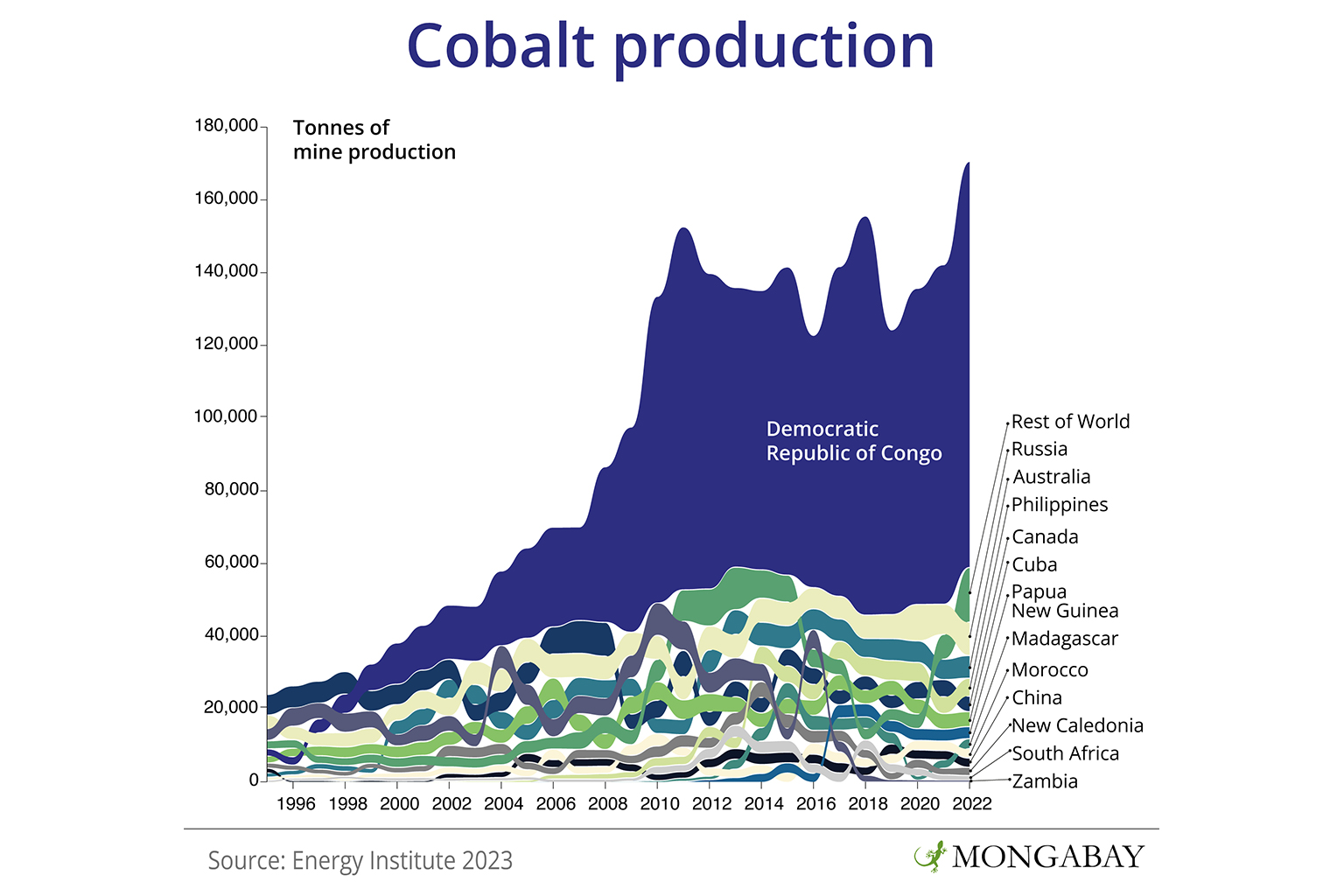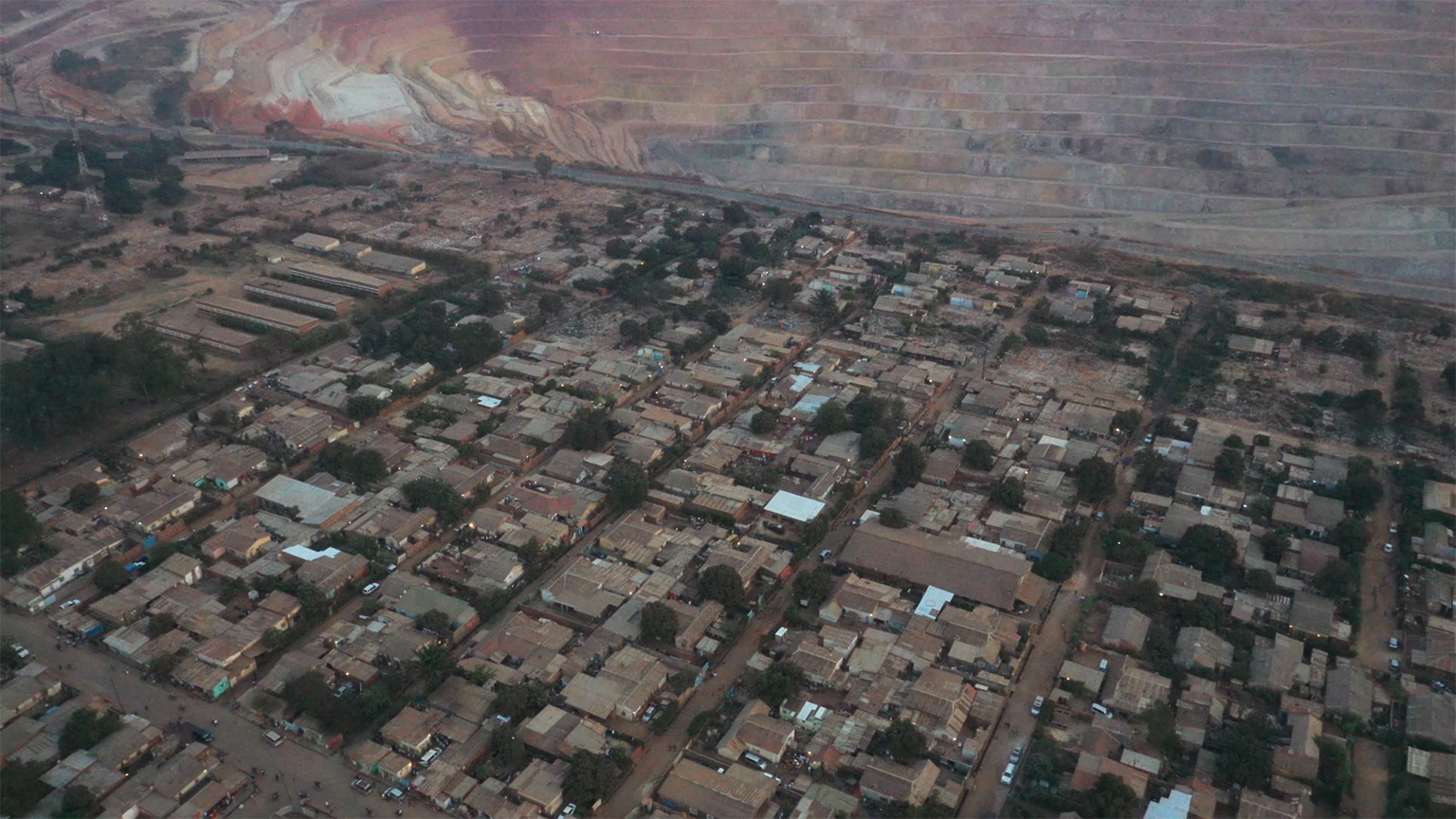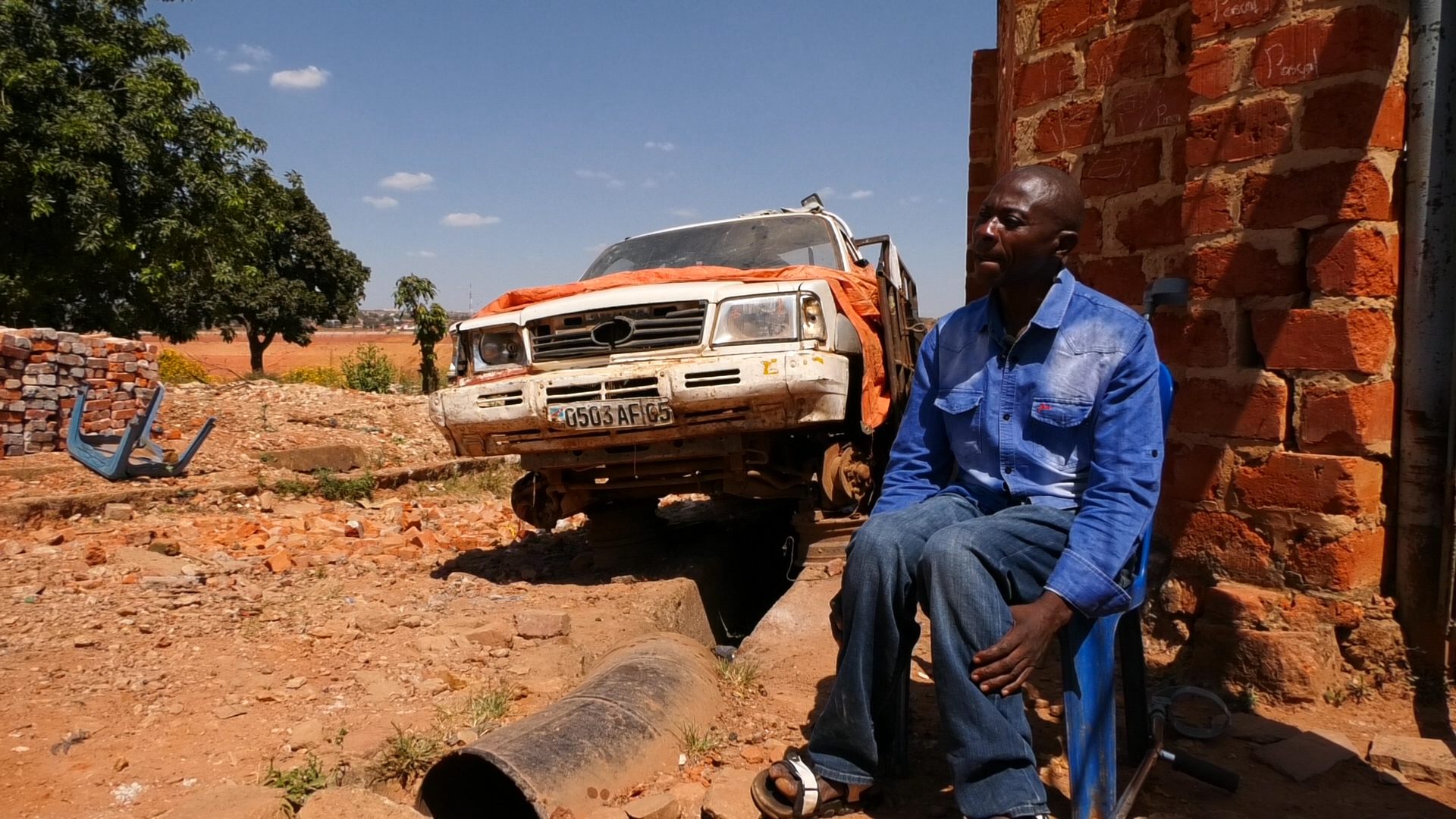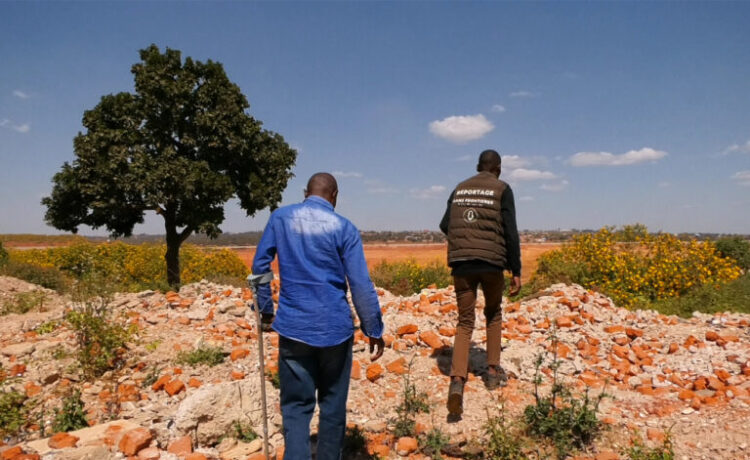- In the DRC, people relocated from mining sites often demand fair compensation for the loss of their property, homes, and other possessions.
- Mining companies do not take responsibility for this process, yet they pay 10% of the compensation funds owed to relocated people into an account owned by a branch of the provincial government, the Relocation Commission, which goes to the commission’s operation.
- According to members of civil society, the commission’s involvement not only deprives relocated people of money but also leaves them without a means of appeal.
- According to Lualaba’s provincial Minister of Mines, Jacques Kaumba, every party should follow the mining code, which he said “is quite clear” and doesn’t permit this to happen.
LUBUMBASHI, Democratic Republic of Congo — After a devastating human toll of 11 dead and several ill due to continued air and river pollution, the village of Kabombwa has definitively disappeared from the map. More than 1,000 residents have found housing elsewhere in the Democratic Republic of Congo’s (DRC) province of Lualaba, including in the neighboring mining town of Fungurume.
Kabombwa’s tranquility had begun fading away in 2020 when lime production began at a nearby plant operated by the Chinese company Tenke Fungurume Mining SA (TFM). According to an official from Fungurume town hall, after over a year of discussions about financial compensation, the inhabitants of Kabombwa received between $3,000 and $5,000 from the government when they were relocated. But for the village’s inhabitants, the amount is far from sufficient. It isn’t enough to buy a house or build a new one in their new villages.
One reason for the insufficient compensation is the provincial government’s administrative process, civil society organizations tell Mongabay.
More precisely due to the Relocation Commission (Commission de délocalisations), a body created by the provincial government of Lualaba to oversee evictions and relocation. This commission ends up taking a percentage of the total funds owed to relocated people. Mining companies, on their end, rarely get involved in the dispute after paying the sum, leaving the government to manage compensating those affected.
Unfair compensation has become a pattern in mining relocations in Lualaba, a province with large deposits of copper and cobalt, two essential minerals for phones, computers and renewable energy technologies. The rush for these precious minerals has caused local residents to fear not only relocation itself but also relocation under unfair circumstances.

Paying for their own relocation
How is compensation received? First, the Relocation Commission conducts an appraisal to determine the value of relocated people’s property. The commission is made up of government officials, deputies, members of civil society, and land technicians. After the appraisal, the mining company makes its payments. Nowadays, this is in the form of bank transfers to the relocated owners of the land rights, but several years ago, beneficiaries received cash.
The Relocation Commission, however, receives 10% of the total cost of payments to be made to relocated people, sources explain. Jean-Pierre Kalenga, a Lualaba government official and chair of the commission, tells Mongabay that this percentage is to fund its operations and its members’ remuneration.
Ten percent of the total amount to be distributed is therefore missing when it reaches beneficiaries. When communities speak of unfair compensation in circumstances such as these, the private companies take no responsibility. Yet they paid 10% of the total amount due to the commission’s technicians, complain civil society organizations.
This means that those who are being relocated are the ones financing the expertise leading to their relocation, Kalenga says.
According to both the Mining Code as well as the Mining Regulations (Annex 18), the holder of the mining rights, thus the mining company, is the party responsible for relocating people exposed to the mining’s harmful effects. This would suggest that the mining company therefore assumes the total cost, including an extra 10% commission, and not the beneficiaries.

The commission and companies’ compliance with the law is thus controversial. In October 2023, Lualaba’s provincial Minister of Mines, Jacques Kaumba, called on the concerned parties to refer to the mining code, which he said “is quite clear” about the relocation-resettlement process. He even believes the Relocation Commission should be dissolved.
“The mining company is the one who has to relocate people. It’s not the state relocating them. We facilitate the process and monitor relocation. But when it’s said that the money’s been given, given to whom, and for what? That’s where you run the risk of putting us in the middle and making us be both judge and jury. The state doesn’t relocate; we facilitate. The mining company is the one relocating people,” Kaumba said.
Relocation without resettlement
According to Donat Kambola, a human rights defender from Kolwezi, the capital of Lualaba, when the Relocation Commission was created in 2017, it met the needs of the time. He explains that the mining code wasn’t as clear as it is today. Following its review in 2018, “the commission’s role and work should be adapted,” Kambola tells Mongabay. Nevertheless, in 2022, a provincial law made the Relocation Commission permanent and defined it as a framework for provincial government representation in the relocation process.
The government’s involvement consequently deprives relocated people of a means of an independent appeal, Kambola says. “When it comes to victims’ rights, yet again, the provincial commission hasn’t set up any systems for processing complaints or appeals. So when a person has a claim, they usually don’t have anyone to take it to,” he says.
Another problem is that companies continue relocating people without a resettlement plan. According to Lambert Menda, coordinator of the New Civil Society of Congo, a network of organizations spread across the country, part of the problem comes from people used to “receiving cash compensation rather than being resettled.” Nevertheless, he acknowledges that some victims ask to be resettled elsewhere; for example, the mining company Metalkol resettled residents of the village of Samukonga. But this resettlement option, which is organized by the mining companies, doesn’t satisfy some victims, who complain of long waits.

For example, in Tshabula, a village near the city of Musonoïe in Kolwezi, and Kakanda, a village near Fungurume, farmers are waiting to be resettled by the mining companies COMMUS and Boss Mining, a subsidiary of Eurasian Natural Resources PLC. Despite the state’s investment in the process, dissatisfaction prevails. Each relocation sees the demand for more funds for property that people say is undervalued, such as houses and fruit trees.
However, according to Christophe Kabwik, an activist who has long defended the inhabitants of Kalukuluku, a village near the Ruashi Mine east of the city of Lubumbashi, mining companies don’t like to organize resettlement for people who have to leave their mining sites. Kabwik believes the reason to be that mining companies prefer to pay less by giving cash rather than building new houses. In 2006, with assistance from the city’s deputy mayor, Ruashi Mining rejected the option of resettling some 200 people who had requested relocation.
Mongabay contacted Ruashi Mining to learn more about their position on relocation, but the company did not respond to our requests for comment by the time of publication.
Jean-Pierre Kalenga, the Lualaba government official, says that in recent years, some relocation candidates have tended to ask for resettlement rather than money. “That’s their right, as is that of those who demand money. We also encourage the resettlement approach,” Kalenga tells Mongabay.
While on the rush towards unearthing critical minerals in the DRC, human rights activist Kambola believes the most important aspect today is respecting the clearly defined steps in the mining regulations, especially Annex 18. In the meantime, he says, “villages are disappearing without any resettlement plan.”
Banner image: Makonga (in blue), who died in June 2024, walking amid the rubble of what was once his village. Image by Eric Cibamba.
This story was first published in French here on Mongabay’s French site on July 29, 2024.
Related Mongabay podcast episode: In ‘the century of Africa,’ Mongabay’s new bureau reports its biggest environmental issues and solutions. Listen here:
FEEDBACK: Use this form to send a message to the author of this post. If you want to post a public comment, you can do that at the bottom of the page.














